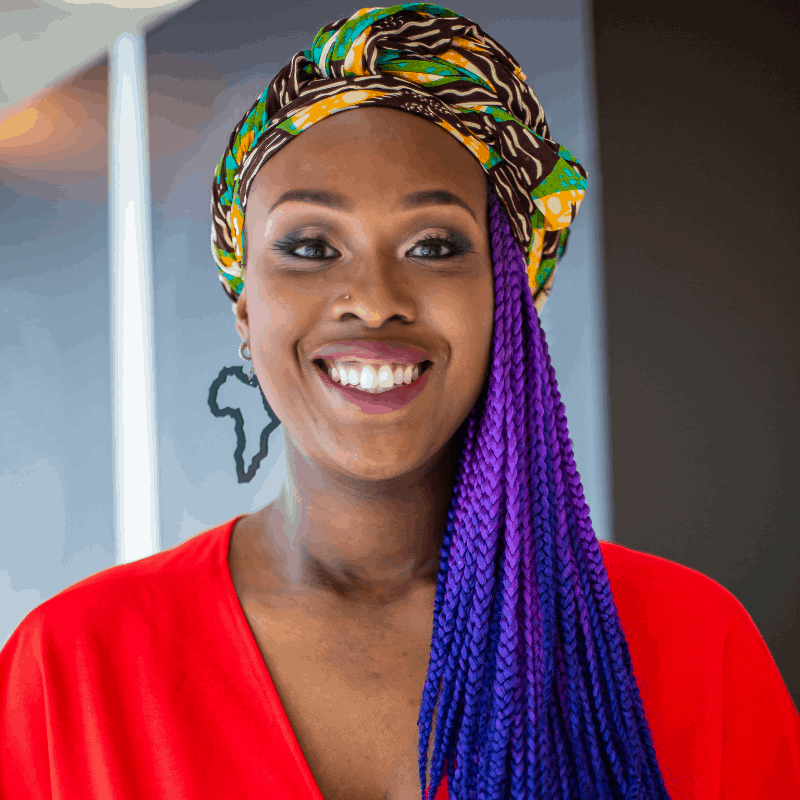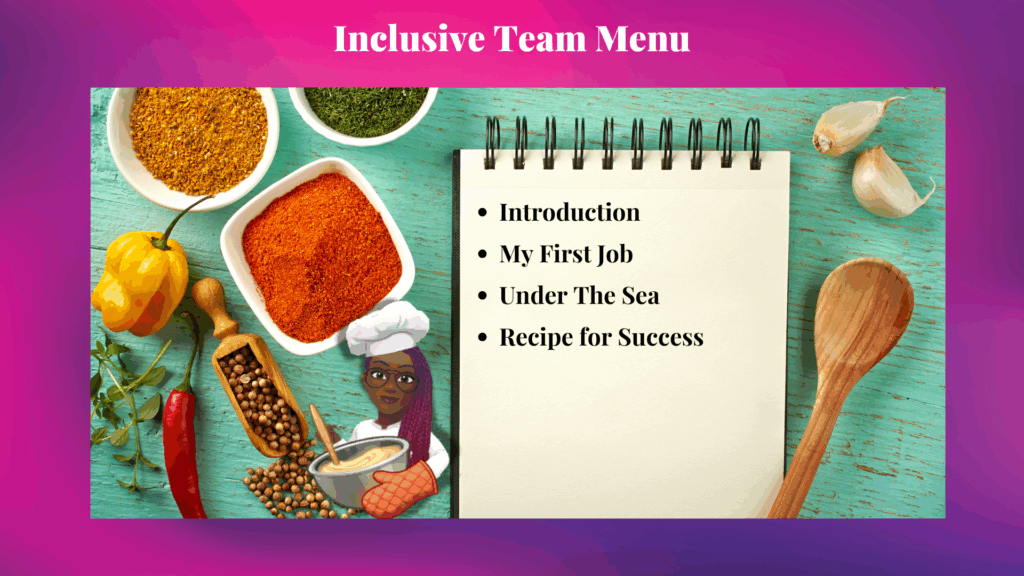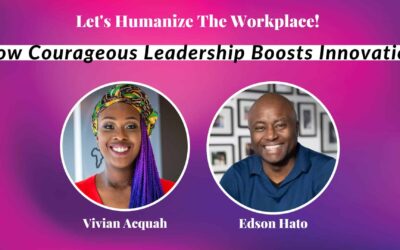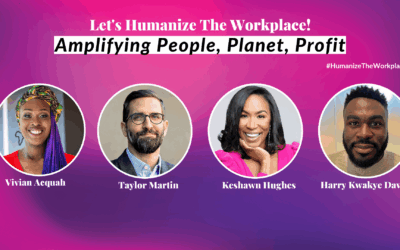Leadership is never easy. The responsibility on leaders is great, as the authority and influence of their position have the potential for both harm and good. The last nearly two years of the COVID-19 pandemic have only added to the list of challenges for leaders to navigate.
But it has also brought opportunities to leaders. Opportunities to get to know their team members on a personal basis. Opportunities to learn and grow along with the powerful social movements of our time. And the opportunity to make necessary changes to embrace, activate, and amplify inclusive leadership practices.
Disclosure: This post contains affiliate links. If you click through and make a purchase, I’ll earn a commission, at no additional cost to you.
The Panel Talk Amplify Inclusive Leadership
The Amplify DEI Summit brought together over 90 speakers in September 2021 for conversations about how to create a world where Diversity, Equity, and Inclusion (DEI) is at the forefront of every workplace. The Amplify Inclusive Leadership Panel Talk was about how leaders, specifically, can amplify inclusive leadership in their workplace. We spoke about the practical and theoretical ways to do so and shared personal challenges and lessons.
The panelists are:
- Hilary Richters, Director & Lead Digital Ethics at Deloitte (She/Her);
- Martin Mason, Founder of Unleashed International (He/Him);
- Stefan Tonnon, VP Human Resources EMEA at Insight Enterprises (He/Him);
- Peter Griffiths, Leadership Coach and Creativity Catalyst at The Mind Takeaway (He/Him).
Vivian Acquah, Inclusive Workplace Wellness Advocate, moderated this conversation (She/Her).
This group of panelists was open and authentic with their journeys as leaders. The conversation boiled down to five main ingredients on activating and amplifying inclusive leadership: effective communication and true listening, vulnerability and honesty, and personal accountability for leaders. Let’s look at each of these a little further in-depth.
Listen to or watch the conversation via the Youtube video below.
Communication & Listening
The panel’s first question was, simply, what is an essential ingredient to amplify inclusive leadership? Peter Griffiths started the conversation with a simple response: listening. Listening is a necessary skill for leaders to develop as it is the gateway to trust between two people.
Listening is also the foundation of strong communication and building psychological safety between people and teams in an organization or company. The panelists were quick to agree that listening is a crucial foundation, but with some caveats.
First, to amplify inclusive leadership, listening must:
- Come from a place of genuine curiosity about the other person and what they have to say.
- Be first, always. Leaders are to listen first and sometimes stop there. Not everything requires a response; sometimes, listening is just to learn.
- Be a starting point for true collaboration. When you want to make changes, particularly in the area of diversity, equity, and inclusion, it’s important to collaborate. Start by listening to each other’s viewpoints before “getting to work.”
- Occur between everyone in the organization. Each person, regardless of position, has a voice and opinion. Leaders should be listening to everyone in the organization to truly understand what people are thinking and feeling. Sometimes leaders will turn externally to consultants or coaches to “fix” problems, when really, listening to their colleagues may be the only necessary step.
“I hear a lot about active listening. But that can be a double-edged sword. Because I’m just saying, show up and just listen to the pulse of people. Just be curious about what’s going on. And you’d be surprised what you pick up. And then because you are listening to those people, therefore, you’ll end up with a lot more trust being built, you’ll cultivate relationships a lot better, and you’ll know what’s going on.” Peter Griffiths
“Be an ally for your team members. During this lockdown, I realized that not everybody speaks up for themselves. So you need to find other ways to have a conversation with your team members. I held safe walks together with team members to understand what motivates them, what drives them, and their challenges. As a leader, I am here to facilitate my team in every way they need to succeed in the journey.” Hilary Richters
Vulnerability & Honesty
As mentioned, sometimes, the job of a leader is to simply listen. To hear what someone has to say and understand it. But, of course, a response is often necessary. As leaders respond, they need to do so with real vulnerability and authenticity. Hilary Richters shared that being vulnerable starts by realizing that you have biases and you don’t know everything. Each person has biases, and it affects how they operate in this world and in business.
Along with acknowledging your own biases, the panelists had some tips on how to operate out of authenticity:
- Identify your own strengths and talents. What can you uniquely bring to the table? Then, look around you and identify the strengths and talents of everyone else so that you can work together and complement one another’s abilities.
- Don’t be afraid to take a personal interest in your team members’ lives. Post-pandemic work will look a lot different than it did pre-pandemic, primarily because of the rise of online and remote work. This gave us a glimpse into each other’s lives as we were on Zoom calls with your “real life” on full display in the background. Panelist Stefan Tonnan shared that this is one of the good things coming out of the pandemic—leaders have learned to approach their employees differently, in a more personal and compassionate manner.
- Prioritize happiness. Host Vivian Acquah spoke on the “Great Resignation” post-pandemic, how so many employees are leaving their workplaces because they are not aligning and not happy there. Leaders should activate happiness in the workplace and seek to find those things that make their employees happy too.
- Embrace feedback… with kindness: Leaders should be as open to receiving feedback as they are to giving it. It’s important to take feedback, even if it’s strong. Some feedback can be harsh, and it’s hard accepting what you have done wrong. So, whenever possible, feedback with kindness can go a long way in cultivating honest, authentic conversation and change.
“Feedback can be shared constructively. Feedback is sharing an action, not making it personal. But sharing an action so that that person can learn from it. Feedback is leaving that person whole. Halloween is coming—I don’t want you to butcher people just like in the Texas Chainsaw Massacre. I want you to keep people whole. That’s a way for them to consume the feedback in a positive way. But also, it leaves space to have these constructive conversations.”
Vivian Acquah
Personal Accountability
The way an organization or company can change is through leadership. Sustainable change has to affect all layers of an organization, but it is leadership who has the power and authority to implement it. That’s why so much of this panel conversation was around personal accountability.
Leaders need to be able to personally identify where they have gone wrong, what they are learning, and what their personal commitment to diversity, equity, and inclusion is.
Here are some of the ways our panelists discussed taking personal accountability as a leader:
- Share what you are learning with your team. It’s okay not to have it all figured out. Some organizations might not like “imperfection” amongst their leaders, but we all know we are imperfect—everyone is. So, it’s okay not to have it all figured out and still be learning as a leader. Take the next step and openly share those lessons with your team.
- Be an ally to your team members. Know that some people may not feel comfortable speaking up for themselves, so stand beside them and speak up when it is appropriate to do so.
- Align what you say and do. Panelist Peter Griffiths shared how often he sees companies where the leader pays lip service to DEI values and initiatives, but nothing is happening on the ground level. If you say you care about something as a leader, make sure it aligns with your actions.
- Be aware of who you surround yourself with. Panelist Martin Mason shared that there are times when a team of people having a meeting are all in 100% agreement with each other. That’s an opportunity to look around and see if there are other people who need to be included in the conversation who have another viewpoint. A leader needs to humbly ask for other ideas, input, and advice so they hear a diversity of opinions.
- Challenge yourself. Be okay with getting a little uncomfortable and challenge yourself to do the right thing. For example, Hilary challenges herself to speak up and use her voice, and Stefan challenges his own biases in every conversation.
“But if I think about the leadership and diversity, I think you need to be authentic and have a commitment to diversity. You need to be able to challenge the status quo, try and hold others accountable and make diversity and inclusion is the personal priority. Because then it will live through your leadership style and how you lead people. I think that if we don’t have that, and you don’t have the commitment to diversity, then it’s all words.” Stefan Tonnon
The way forward as an inclusive leader
This panel discussion should have gone on for longer. There is so much to talk about in terms of leadership and how to amplify inclusive leadership. Instead, we’ll leave it off with the best advice from our panelists. When asked, “What are two words that you want leaders to learn from being an inclusive leader?” our panelists shared this: Speak up, break the silence, and be an ally (Hilary); vulnerability and innovation (Martin); be curious (Stefan); listening and compassion (Peter).
You can visit the Amplify DEI website here for full access to videos and other resources to initiate and activate Diversity, Equity, and Inclusion in your workplaces.
Latest Posts
- The Role of Inclusive Workshop Facilitator in Transforming Teams
- The Role of Male Allies: A Conversation on Inclusive Leadership and Cultural Intelligence
- How Courageous Leadership Boosts Innovation
- Powerful Employee Resource Groups (ERGs): Driving Organizational Success
- Stripe’s Best Practices for Employee Layoff: A Blueprint for Psychological Safety







